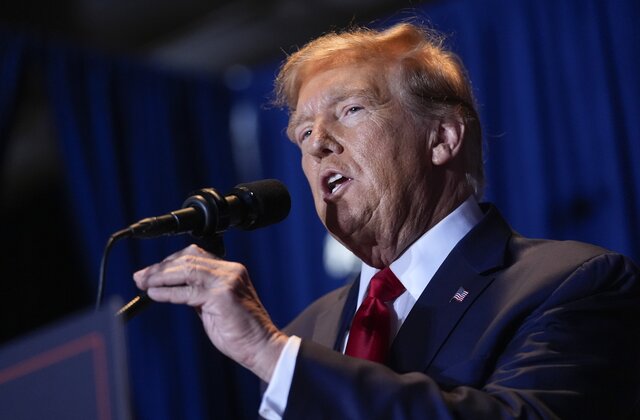The Carter Center, founded by former president Jimmy Carter, normally sends election observers to countries such as Sierra Leone, Venezuela and the Democratic Republic of Congo. This fall, the group will deploy nonpartisan monitors in Michigan, Arizona and, yes, Georgia — not the country but the state where the group is based. Such vigilance, in the world’s oldest democracy, reflects the corrosive downstream effects of former president Donald Trump’s years of relentless election denialism.
Mostly under the radar, Trump backers in some key states are probing for weaknesses in the nation’s decentralized election administration system. For example, Mr. Trump’s allies appear to be exploring whether county-level officials can block the certification of vote tallies, if the election doesn’t go their way.
The United States has more than 3,000 counties. Dragging out certification in one could create a cascading problem in which a state is unable to certify its results by the Dec. 17 deadline to cast its electoral votes so that they can be sent to the Capitol for counting on Jan. 6, 2025. If no candidate receives 270 electoral votes, the House might be forced to pick the president — with each state’s delegation getting one vote, a system that favors Republicans.
The Electoral Count Reform Act that passed in 2022 addressed weaknesses exposed by Mr. Trump’s efforts to overturn the 2020 election. State legislatures will find it harder to block certification, and the threshold is higher for members of Congress to block the counting of electoral votes a state submits. Yet, while significant and valuable, the bipartisan measure did not address every vulnerability.
That’s why it’s concerning that county-level officials have tried to block the certification of vote tallies in five battleground states since 2020. The Post’s Amy Gardner, Patrick Marley and Colby Itkowitz report that deep-pocketed, pro-Trump groups are backing these efforts, including a test case underway in Georgia’s Fulton County, home to Atlanta and the first presidential debate on Thursday. Courts in Pennsylvania are also considering whether local boards must include in their certification totals ballots with certain errors, after local election boards in three counties withheld thousands of votes two years ago. (Certification doesn’t forestall litigation or other challenges.)
Fortunately, none of the efforts has succeeded — so far. Some states have strict rules limiting county election boards’ autonomy for just this reason. Two commissioners in rural Arizona face criminal charges for refusing to certify midterm results. “Last month in Michigan’s Delta County, the Board of Canvassers voted not to certify local results,” The Post reports. “A similar attempt to not certify May election results occurred in Nevada in Washoe County, home to Reno. … Officials cited mistrust in election machines or ballot errors but offered no evidence of widespread fraud. In all four, certification proceeded after state intervention.”
These machinations come as Mr. Trump refuses to commit to abide by the 2024 results, a reprise of his posture in 2016 and 2020. At their first debate four years ago, Joe Biden expressed confidence that Mr. Trump would accept the results after all the ballots were counted. “That’ll be the end of it,” he said. Unfortunately, Mr. Biden was wrong. Exit polls in the GOP nominating contests showed that a majority of Republicans have embraced the lie that the president did not win legitimately. Two-thirds of Iowa caucus-goers said so, for example.
Mr. Trump demanded that the Republican National Committee make “election integrity” its No. 1 priority as he ousted its chairwoman earlier this year. The RNC announced plans last week to enlist at least 100,000 poll watchers, workers and election judges for November. Training sessions are being held in every battleground. In one welcome contrast to four years ago, however, the national GOP is embracing early, mail-in voting — something Mr. Trump previous called “corrupt,” even as he cast his own ballot that way.
To be clear, many elections officials, and legions of lawyers in both parties, are preparing earnestly for the 2024 vote. Some state election administrators have identified voters in key jurisdictions who might serve as plaintiffs in emergency lawsuits demanding that county boards certify results if officials balk. These efforts, along with state-level safeguards and Trump backers’ record so far, give reason to hope the nation’s democratic structure will hold. The election system also remained mostly uncontroversial during the 2022 midterms. But Mr. Trump, of course, wasn’t on the ballot.
A mere handful of officials in one or two major battleground states could sow widespread doubt or upend the certification process, and motivated partisans appear to be searching for any hole in the system to exploit. Americans should not be manipulated nor lulled into thinking 2020 was a one-off. Instead, they should take seriously continuing threats to their vote — and demand their leaders stop discrediting their democracy.







